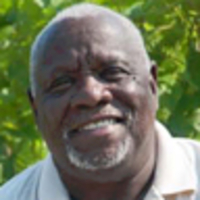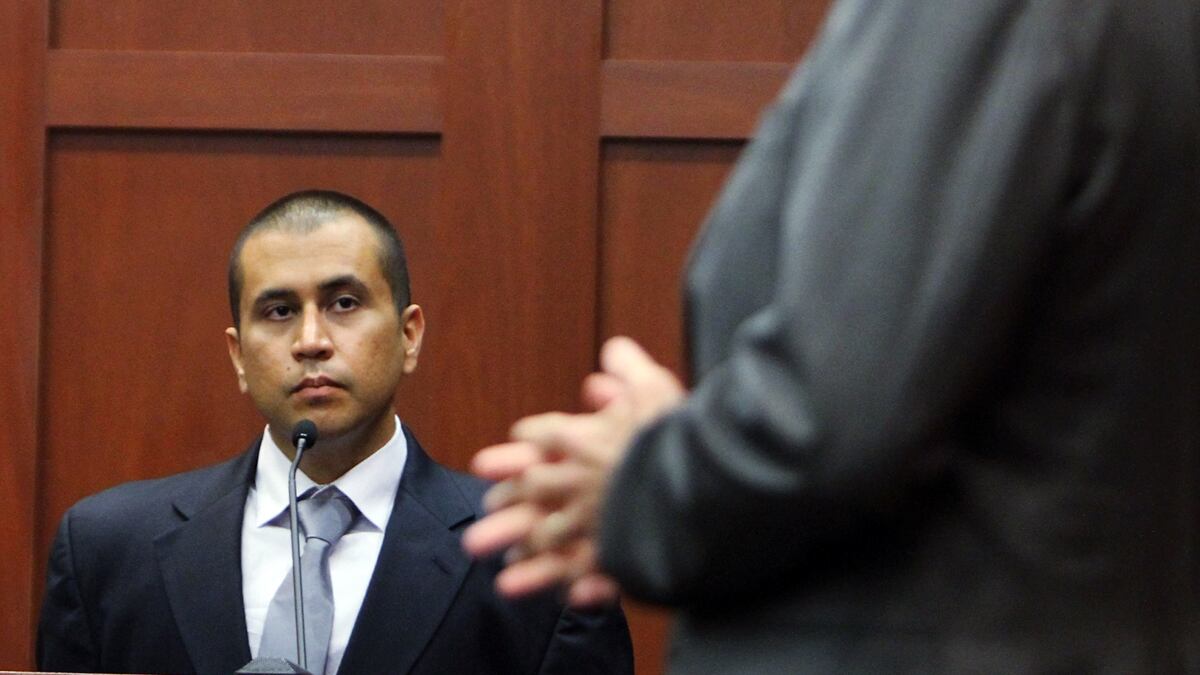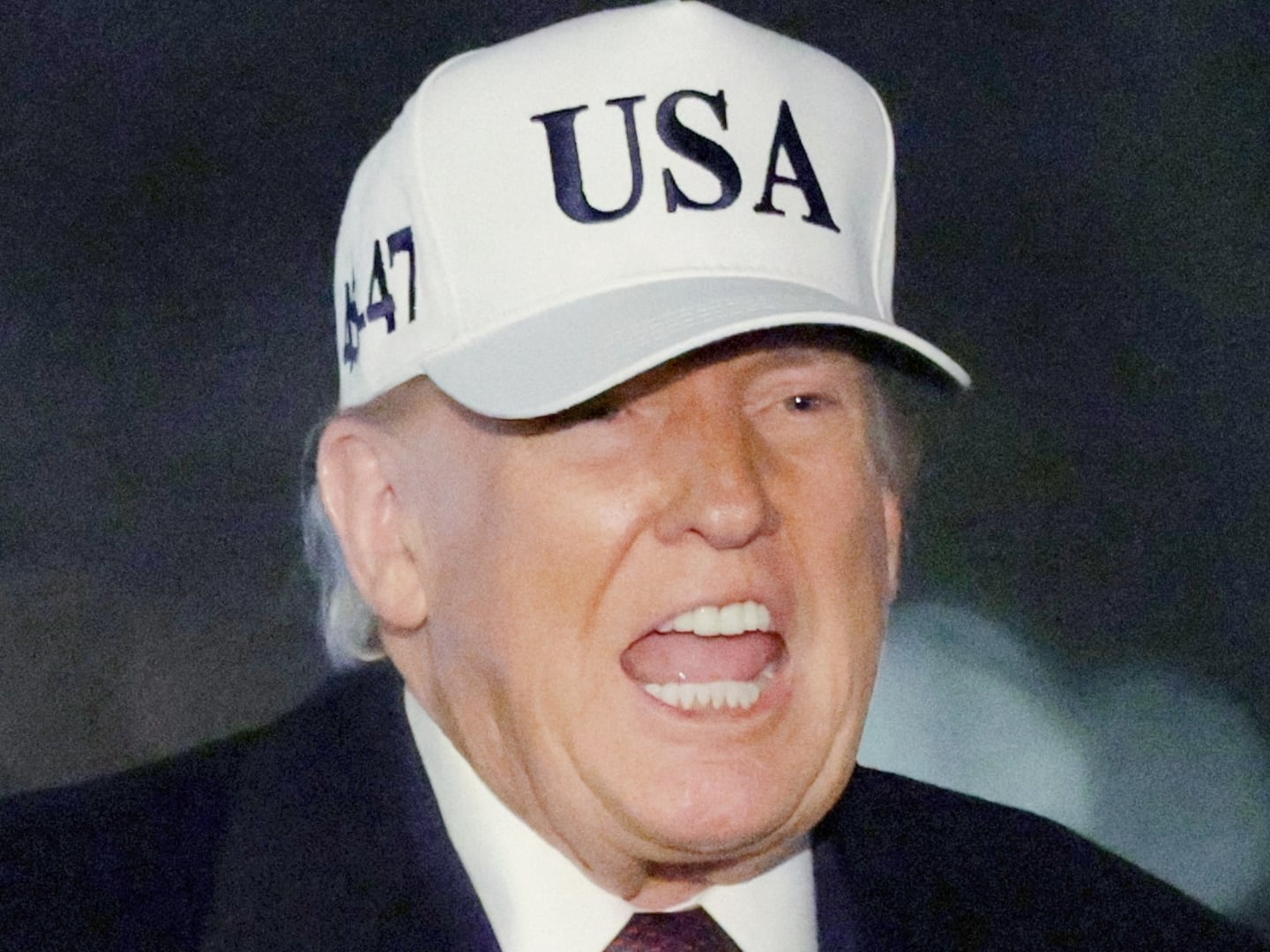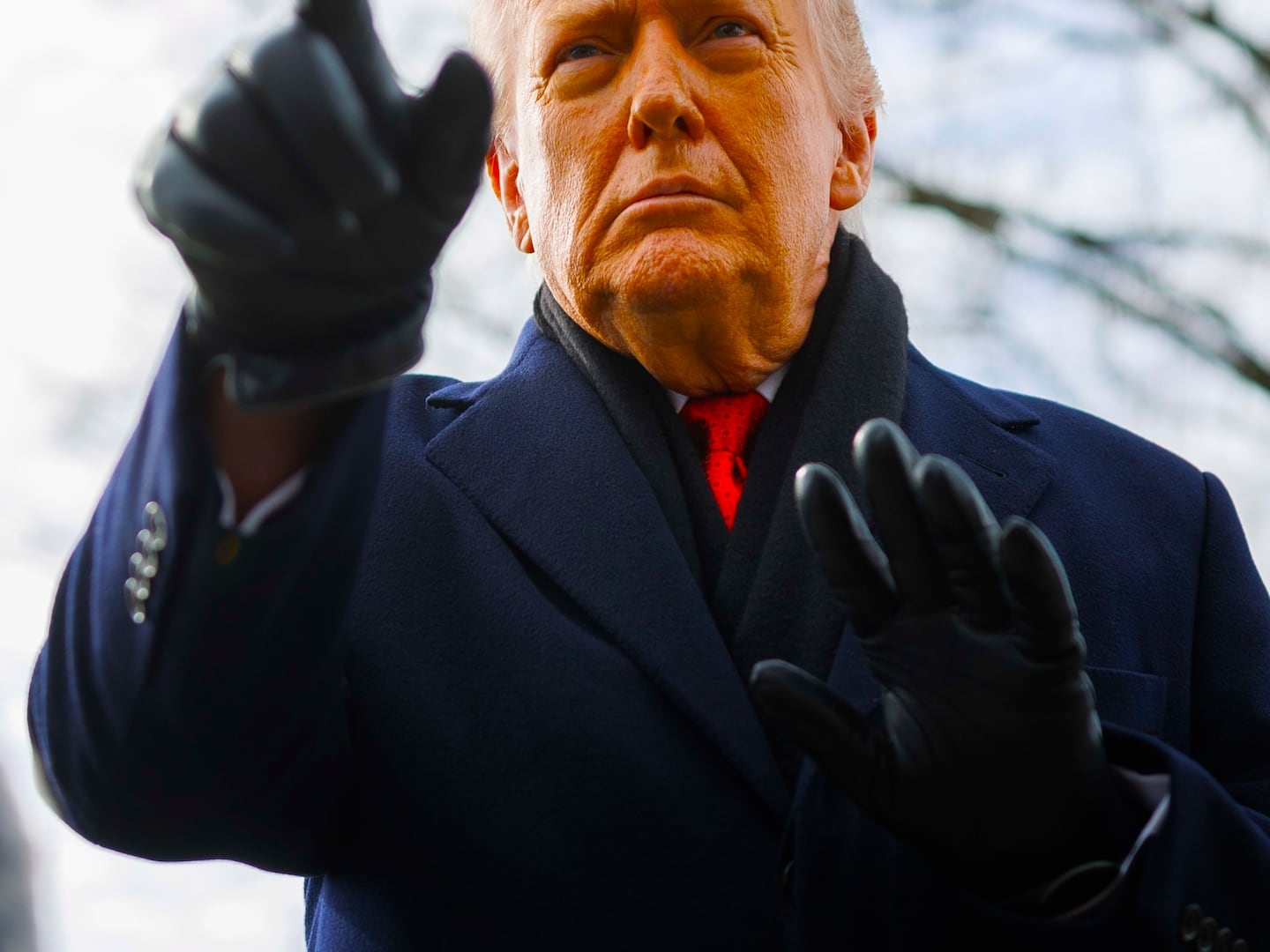An editor I used to work for had a favorite saying: “Predicting the future is usually as easy as stating the obvious.” In the upcoming trial of George Zimmerman, the “obvious” is this: there’s little, if any, chance to avoid not only a mistrial, but a series of them if the state continues to reindict him, which it has the right to do and no doubt will, but with the same result over and over again.

At some point in the future, after endless retrials, it will seem as if this case—like the racial discord that will cause it to hang around our nation's collective neck like an albatross—has always been a part of American life, like Mount Rushmore, the Liberty Bell, or the Washington Monument.
The problem for the Florida legal system is that at this juncture, the case really isn’t about points of guilt or innocence that a jury can make reasoned decisions on. The case has become a referendum on the Stand Your Ground law and, more importantly, a referendum on the thorny issue of race in America. How to bridge the chasm that divides the races in America (which, amazingly, seems to both widen and narrow at the same instant in this country) is not only a question we don’t have the answer to, it’s a question we don’t even like to ask.
However, the case at hand is forcing our hand—it quite simply won’t allow us to duck the issue of race, at least for a while. Whether this is a good or bad thing is yet to be seen. Will this forced confrontation of racial attitudes help to solve our national problem, or will it only be made worse?
Voir dire is the process whereby attorneys from both sides get to ask potential jurors questions. Under Florida law six jurors (not 12) will hear the case against Zimmerman. In the state’s code of criminal procedure, the section that outlines the “grounds for challenge to individual jurors for cause” (Section 913.03) is the longest and most detailed by far, and for good reason. All criminal-defense lawyers (and prosecutors, as well) know cases can be won or lost during jury selection. In addition to striking a juror for “cause,” each side has six “preemptory” challenges, which means a potential juror can be dismissed without a reason being given. After Jim Crow laws were abolished, these preemptory challenges were the tool used to keep blacks off of juries.
But all-white juries are a thing of the not-too-distant past, and there’s no way to impanel a jury in the case at hand that doesn’t have at least one or two blacks on it. And with Florida’s liberal use of cameras in courtrooms (unless the judge rules them out in this case or instructs that the jury not be shown), everyone in the country is going to know who is sitting on the jury, and therein lies the rub.
The facts of this case, no matter if they are for or against Zimmerman, ultimately will have very little to do with the outcome. Jurors, when it comes to voting on guilt or innocence, are most likely going to break down along racial lines. Try as they might to be good citizens and follow the instructions of the judge to put their personal feelings aside and make a decision based only on the facts of the case, the odds are that they will deadlock. This is not to say they are weak people; rather, it indicates how strongly race factors into decisions in American life, and it’s hard to see how this case will be an exception. Jurors are not superhuman.
Because of this, no matter how many times the state puts Zimmerman on trial, the outcome will probably be the same: a hung jury. Few, if any, whites in the South are going to want to be forever known as a member of a jury that voted to convict Zimmerman, and conversely, no black is going to care to be known as the person who voted to acquit him. It’s a recipe for deadlock.
Talk is already circulating of a change of venue, but a change to where? The moon? There’s no place in the country where potential jurors haven’t heard about the case, and most folks (black and white, rightly or wrongly) have already formed opinions that by now are virtually intractable.
Besides, the cult of celebrity worship that’s developed in this country virtually assures that the good folks in the state of Florida, who are about to participate in what promises to be the most high-profile court case of the century so far—perhaps even eclipsing the Casey Anthony trial—are not about to let their shot at fame (and a potential book deal somewhere down the line) slip through their fingers. There will be no change of venue—bet on it.
This trial will afford us the opportunity, albeit by way of force, to deal with the skeleton of race that’s been hanging in the national closet for centuries. How well or badly we use it is really up to us.






